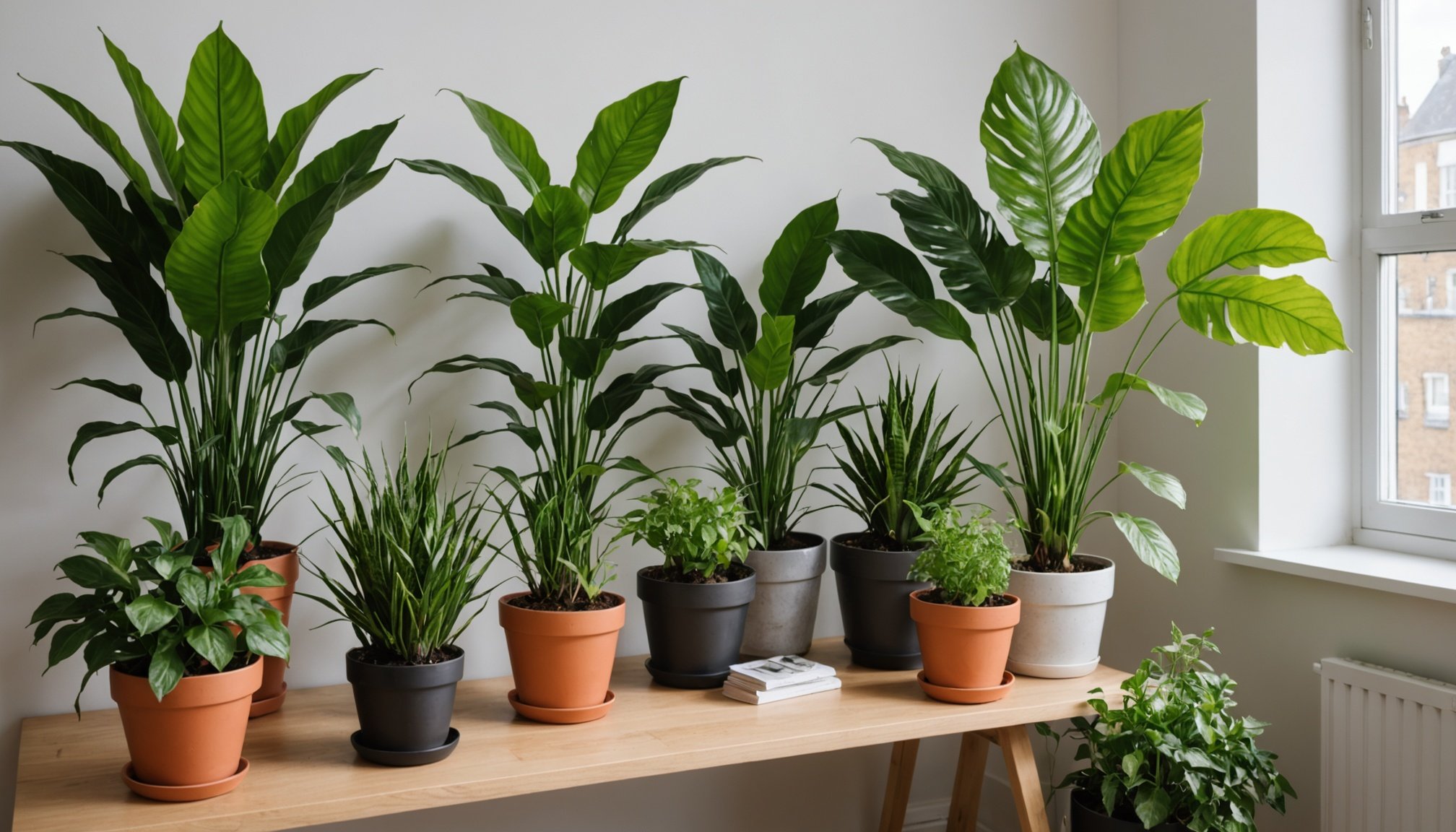Understanding Seasonal Allergies in London
Seasonal allergies can significantly affect individuals in urban settings like London. Common allergens include pollen from trees, grasses, and weeds, which vary with the seasons. Spring often brings tree pollen, particularly from birch and oak, while summer is dominated by grass pollen. Autumn sees an increase in weed pollen.
Indoor plants can influence seasonal allergy symptoms. While some may contribute to allergies by harbouring pollen or mould, others can improve air quality and reduce allergens. Plants like bamboo palm and peace lily are known for their air-purifying qualities and can potentially help alleviate allergy symptoms.
A lire en complément : Top Strategies to Keep Foxes Out of Your London Garden: Effective Deterrence Tips
Monitoring London pollen forecasts is crucial for managing allergies. These forecasts provide daily updates on pollen counts, enabling individuals to take precautions such as closing windows or limiting outdoor activities when counts are high.
Incorporating measures like choosing the right indoor plants and following pollen forecasts can help manage seasonal allergies in London effectively. Understanding the nature of allergens and their impact throughout the year empowers individuals to make informed decisions to improve their well-being.
A lire en complément : Discover the Ultimate Water Heating Solutions for UK Homes: What’s the Most Energy-Efficient Method?
Selecting Low-Allergen Indoor Plants
Choosing low-allergen plants for your home can significantly enhance indoor air quality while minimising allergy risks. When seeking the best indoor plants with low allergen potential, it’s crucial to consider options like the Spider Plant and Snake Plant. These are well-regarded for their minimal pollen production, making them ideal allergy-friendly options.
Tips for Choosing Allergy-Friendly Plants
When selecting plants, it’s important to be mindful of personal allergies and sensitivities. Consider non-flowering plants since they generally produce fewer allergens. The Peace Lily, despite its name, is less likely to trigger allergies due to its low pollen production.
Benefits of Non-Flowering Plants
Non-flowering plants offer multiple benefits in minimizing allergens. They typically do not release pollen into the air, which makes them excellent for individuals with pollen allergies. Moreover, many are effective in filtering indoor air, contributing to a healthier living environment.
For those with severe allergies, consulting with a specialist before introducing new plants is advisable. By being informed and selective, you can create an inviting and allergy-friendly home that promotes well-being and comfort.
Effective Plant Care Practices
Caring for indoor plants involves specific maintenance routines that can significantly reduce allergens like pollen and dust. Regularly wiping leaves with a damp cloth can minimize dust collection, enhancing your indoor air quality. Unlike outdoor plants, indoor plants are more confined, meaning dust and allergens have less opportunity to disperse. Thus, it’s important to incorporate these tasks into your regular plant care routine.
Cleaning the soil surfaces can also play a pivotal role in reducing allergen levels. Over time, soil can accumulate a layer of fine dust and even harmful mold. Gently cultivating the top layer of soil, in addition to cleaning fallen leaves and debris, helps to maintain a cleaner environment around your plants.
Balanced watering techniques are crucial to preventing mold growth. Overwatering doesn’t just harm your plant but also contributes to high humidity levels, which favor mold. To strike the right balance, ensure that the plant pot has proper drainage, allowing excess water to escape. Watering thoroughly but less frequently is often recommended, letting the soil almost completely dry out between sessions. This not only promotes healthy roots but also reduces conditions conducive to mold proliferation.
Creating an Allergy-Friendly Indoor Environment
Improving indoor air quality is crucial for those suffering from allergies, especially in a bustling city like London. To enhance air quality, consider a few effective strategies. Start by regularly vacuuming with a HEPA filter vacuum cleaner to capture fine particles and prevent allergens from circulating.
Investing in an air purifier can significantly benefit allergy sufferers. These devices filter out particles like dust, pollen, and pet dander, ensuring you breathe cleaner, healthier air. When choosing an air purifier, opt for one with a high Clean Air Delivery Rate (CADR) and a True HEPA filter, which captures 99.97% of airborne particulates.
Additionally, the placement of houseplants is more than just aesthetics; it can impact allergen control. Some plants, like the spider plant or peace lily, help to purify the air. However, organize them strategically to prevent mold growth and avoid those known to produce pollen.
By focusing on these strategies, you create a healthy living space that minimizes allergens and enhances overall well-being. Proactive management of air quality ensures a comfortable and allergy-friendly environment in your home.
Seasonal Allergen Patterns and Their Management
Understanding allergen patterns is crucial for effective allergy management, especially in a bustling city like London. Each season brings its unique set of allergen challenges. In spring, pollen levels from tree and flower blossoms can soar, affecting sensitive individuals. This is followed by an increase in grass pollen during the summer months. The autumn season then sees a rise in mold spores, particularly during damp and wet conditions. Finally, in winter, indoor allergens like dust mites and pet dander may become more problematic as we spend more time indoors.
Managing these allergens requires a proactive approach. Adjust plant care routines to minimize allergen triggers. During high pollen seasons, regularly wipe down plant leaves to reduce accumulated pollen and prevent its spread indoors. In winter, control indoor humidity to prevent mold growth. Additionally, keeping windows closed or using air purifiers can help maintain a pollen-free environment.
The role of weather is significant in allergen management. Rain can wash away pollen, providing temporary relief, but it also fosters mold growth. Therefore, staying informed about weather patterns can guide decisions on when to ventilate your home or manage plants to reduce allergen exposure.











